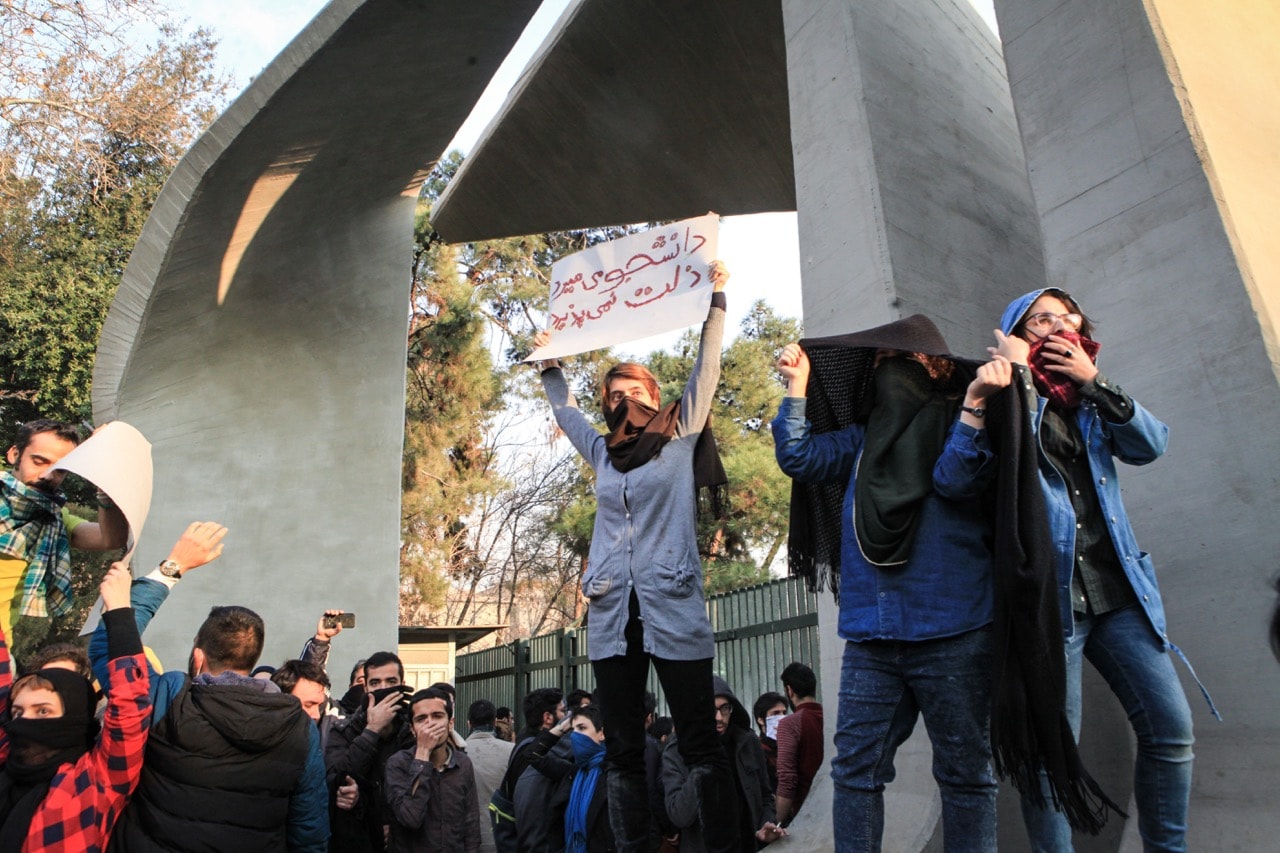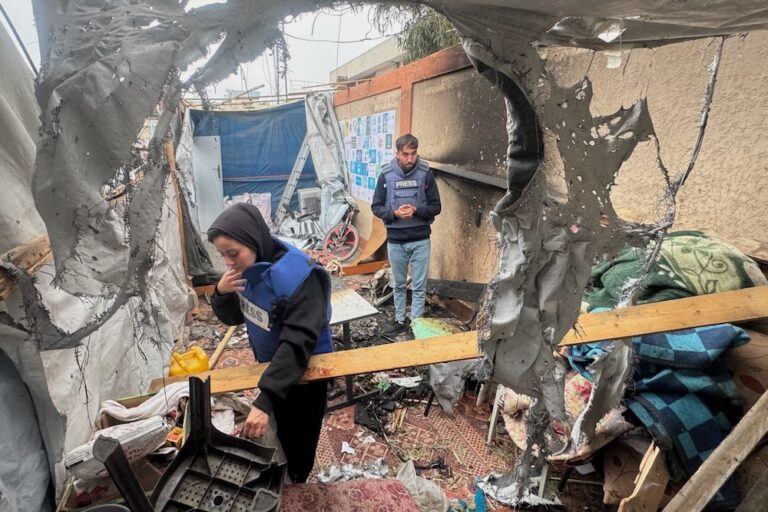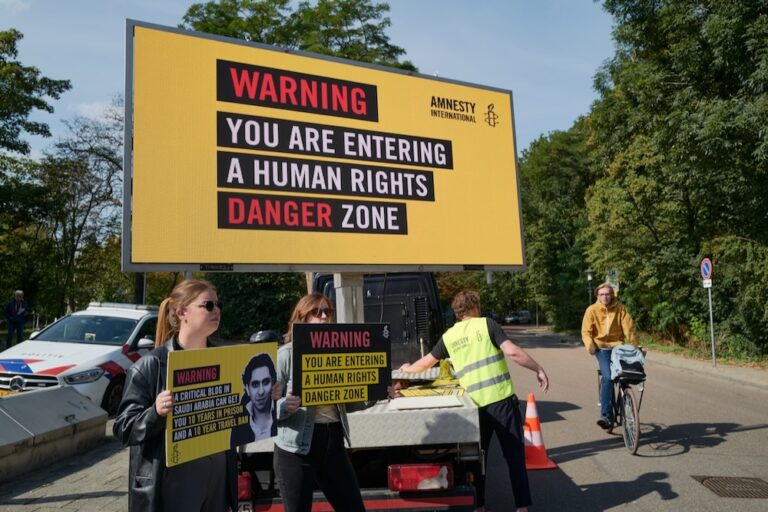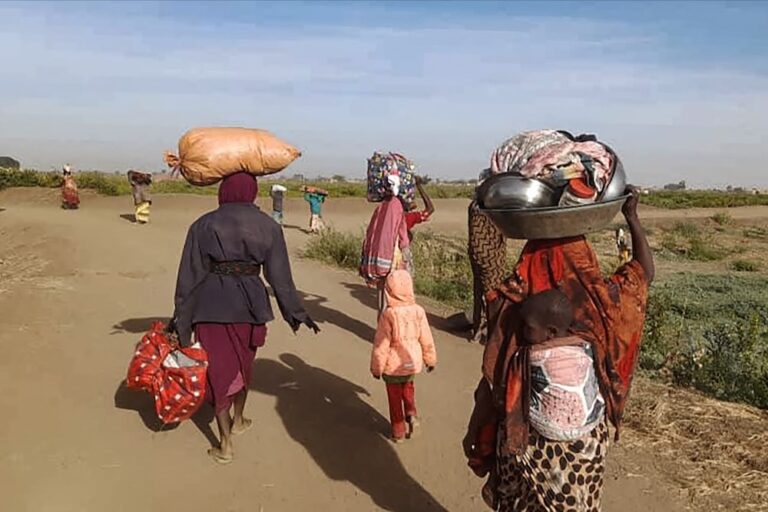In a month that included a malware surveillance campaign in Lebanon, Telegram being blocked in Iran and crackdowns in Tunisia, the release of Hisham Al-Omeisy was a welcome bit of good news.
Iran protests
Mass – and mostly unexpected – protests across Iran marked the beginning of 2018. IFEX members, including Human Rights Watch (HRW), ARTICLE 19, Global Voices, Reporters Without Borders (RSF), and PEN International, reported and commented on several of the ramifications the widespread and largely leaderless demonstrations have had on freedom of expression.
In the early days of January, Human Rights Watch condemned the use of excessive force against demonstrators and demanded an investigation into the deaths of at least 21 individuals during clashes, and RSF exposed the Iranian regime’s efforts to target journalists and media outlets in Iran and censor coverage of protests by media based abroad. RSF and Global Voices also shed light on the central role Telegram, a messaging app popular in Iran, played in regards to the demonstrations, and its eventual blocking by authorities. PEN International highlighted the case of Iranian poet Mohammad Bamm, who was arrested by members of the Iranian security forces on 31 December 2017 while on his way home in the city of Abadan, Iran. And ARTICLE 19 identified the protest movement as an opportunity for the government to implement regulations intended to support government transparency, namely Iran’s Access to Information law.
Business as usual in the Gulf States
Despite promised reforms and plans for modernization, when journalists criticize the government in Saudi Arabia they are likely to get arrested. According to the Committee to Protect Journalists (CPJ), in their first free expression-related arrest of 2018, Saudi security forces arrested al-Shehi, a columnist for the Saudi Arabian daily al-Watan, on 3 January. On 25 January, the Specialized Criminal Court convicted two Saudi human rights activists solely for their human rights advocacy. According to HRW, Mohammad al-Oteibi was sentenced to 14 years in prison and Abdullah al-Attawi to 7 years.
It is not only journalists and critics inside Saudi Arabia who face reprisals for criticizing the country. In Kuwait, on 25 December 2017, independent journalist Abdullah Al Saleh was sentenced in absentia to five years imprisonment with hard labour after being found guilty of “abusing Saudi Arabia”. Kuwaiti courts also found al-Saleh guilty of insulting the United Arab Emirates, and, in a separate trial, of insulting Bahrain, Saudi Arabia and the UAE collectively. According to CPJ, he has not been sentenced in these two cases yet. And on 3 January 2018, human rights defender Sulaiman Bin Jassim, accused of allegedly storming Parliament and sentenced to seven years in prison, began a one-week hunger strike to protest the injustice with which his trial was handled. According to the Gulf Center for Human Rights (GCHR), Bin Jassim was sentenced based on “fabricated charges” and that he was targeted solely for his peaceful activism.
In Bahrain, on 15 January, the Court of Cassation rejected human rights defender Nabeel Rajab’s appeal of a two-year prison sentence for “spreading fake news that undermine the prestige of the state”, and postponed once again his case for tweeting against the Saudi-led coalition war in Yemen to February 21, 2018. The Bahrain Center for Human Rights (BCHR) and Americans for Democracy and Human Rights in Bahrain (ADHRB) published statements condemning the decision.
In Oman, on 15 January, a new and concerning Penal Code came into effect. According to a comprehensive analysis by GCHR, “the new law contains several vaguely-defined articles that could easily be used by the Internal Security Service (ISS), known for its history of human rights violations, to target human rights defenders and internet activists, and to suffocate public freedoms”.
War on Yemen
Journalists and activists in Yemen operate under dangerous circumstances. Given that international journalists have very little access to the country, the courageous efforts of local activists and reporters to inform the international community of the suffering Yemenis have been subjected to by all sides of the conflict are gravely needed, but they come at an incredibly high price.
On 22 January, Yemeni photographer Mohammad Al Qadisi was killed in a missile strike while on assignment. A second journalist, reporter Basheer Aqlan, was injured in the same attack and is in a coma at Khalifa Hospital with shrapnel injuries to his head and neck, according to CPJ.
Journalists and activists are also often targeted specifically for their activities. Both the Houthis and the Saudi-led coalition have forcibly disappeared thousands of Yemenis. After five months in captivity, Houthis released prominent activist and political analyst Hisham Al-Omeisy this month. Both Global Voices and GHCR celebrated his release and called on all warring parties to release all those detained for their peaceful activities.
Tunisia marks seven years since revolution with crackdown on dissent
A ten-day wave of anti-austerity protests in various Tunisian cities this January have been marred by police mistreatment and harassment of protesters and journalists alike. According to HRW, police sometimes beat those arrested and denied their right to a lawyer under Tunisian law. They also arrested some people for distributing leaflets critical of the government. One French reporter was briefly taken to a police station and interrogated for nearly an hour on 11 January and another was questioned on 14 January. One reporter had his phone confiscated. Also in January, a Tunisian blogger who recently won election to parliament discovered he is facing two military trials for criticizing the army on social media.
Egypt’s vanishing space for political expression
As Egypt’s first presidential election since Abdel Fattah El Sisi took power approaches, both international and local observers have noted Sisi’s attempts at eliminating any serious opposition to his rule. Regional organisations, including the Cairo Institute for Human Rights Studies (CIHRS) and the Arabic Network for Human Rights Information, warned in December 2017 that the upcoming elections would simply be “a referendum to renew fealty to the sitting president”, and the arrest and enforced disappearance of potential presidential candidate General Sami Anan on 20 January confirmed it. In a joint statement condemning the arrest, CIHRS, ANHRI, and other local organizations listed several other examples of government attempts at discouraging potential presidential opponents.
Furthermore, on 27 January, Judge Hisham Genena (Anan’s human rights affairs deputy) was brazenly attacked in what appears to be the latest reprisal in a coordinated retaliatory campaign by Egypt’s security forces against anyone willing to challenge Sisi’s claim to the presidency.
Lebanon’s shrinking tolerance for critical speech
A pattern of prosecutions against those who criticise officials that began in November 2017 in Lebanon continued well into January 2018, with three new cases bringing criminal charges against Lebanese citizens. Human Rights Watch released a statement on 31 January expressing concern and providing details of each individual case.
Lebanon also came under fire internationally this month after researchers at the Electronic Frontier Foundation (EFF) and Lookout released a report alleging that a malware espionage campaign responsible for stealing hundreds of gigabytes worth of personal data was tied to a building owned by Lebanon’s General Security agency. Ten human rights and media organisations called on Lebanon’s general prosecutor to investigate the claims of secret large-scale surveillance.
In Brief
In Iraq, on 2 January, unknown assailants set fire to Al Dijlah TV’s Baghdad bureau. While no one was injured in the blaze, the fire destroyed all of the channel’s equipment and the bureau’s new office.
In Syria, two reporters for pro-opposition media outlets were injured in an 11 January 2018 airstrike while covering clashes in the south of Idlib province.
In Jordan, on 16 January, a Amman prosecutor ordered the arrest of the editor-in-chief and editor of Jfranews over an article published earlier this month about the finance minister. They were charged with violating provisions of the Press and Publication Law, and the Cybercrime Law.
In Palestine this month, 7amleh – the Arab Center for the Advancement of Social Media organized a major digital activism forum in Ramallah around the protection of digital rights in Palestine and globally; Palestinian innovation in digital activism in Palestine; and global trends in digital activism. The center published a statement detailing the key points that emerged from discussions during the forum.



